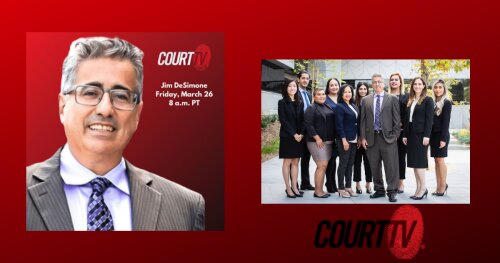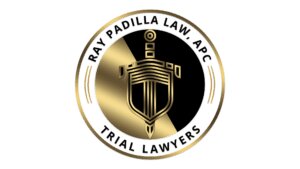Best Education Law Lawyers in California
Share your needs with us, get contacted by law firms.
Free. Takes 2 min.
Or refine your search by selecting a city:
List of the best lawyers in California, United States
About Education Law in California, United States
Education Law in California governs the rights, responsibilities, and standards for students, parents, teachers, and educational institutions at all levels, from pre-kindergarten through higher education. California’s education system is one of the largest and most diverse in the country, which means that education law here is especially complex, addressing issues like student rights, special education, school funding, teacher employment, discrimination, discipline, and access to educational resources. These laws are shaped by state statutes, federal regulations, and numerous court decisions.
Why You May Need a Lawyer
There are several common situations where someone might need legal assistance in education law in California. If a student is facing suspension or expulsion, requires special education services under the Individuals with Disabilities Education Act (IDEA), or is experiencing discrimination or bullying, legal guidance can be crucial. Families may seek a lawyer to challenge Individualized Education Program (IEP) decisions, to appeal disciplinary actions, or to address disputes over educational accommodations. Teachers and school employees might need legal help with employment disputes, contract negotiations, wrongful termination, or issues involving certification and licensure. Education law attorneys can also help with navigating complex administrative proceedings or fighting for access to educational resources.
Local Laws Overview
California education law is governed by the California Education Code, as well as regulations from the California Department of Education and local school district policies. Key aspects include:
- Student Rights and Discipline: Laws protect students’ rights to a safe and fair education. There are specific procedures for suspensions, expulsions, and alternative education placements. Student privacy is protected under both federal laws like FERPA and state laws.
- Special Education: Under state and federal law, students with disabilities are entitled to a Free Appropriate Public Education (FAPE) and related services. The legal process includes assessments, IEP meetings, and due process hearings.
- Discrimination: Education Code and the California Fair Employment and Housing Act prohibit discrimination based on race, gender, sexual orientation, religion, disability, and other protected characteristics in educational settings.
- Teacher and Staff Rights: The state governs employment terms, credentialing, workplace discrimination, and tenure for school staff and faculty.
- Access and Funding: Laws regulate funding for public schools and student access to educational opportunities, including rights related to English learners, homeless students, and foster youth.
Frequently Asked Questions
What are my child’s rights if they are being suspended or expelled from a California public school?
Students are entitled to due process, which means the school must provide notice of the alleged misconduct, an explanation of the evidence, and an opportunity for the student to respond before imposing suspension or expulsion. Longer-term removals involve hearings, and parents may appeal decisions.
What services are California public schools required to provide for students with disabilities?
Schools must offer special education and related services as outlined in the student’s IEP, using assessments and periodic reviews to ensure a Free Appropriate Public Education tailored to the student’s needs, under both federal and state law.
Can I challenge my child’s Individualized Education Program (IEP) if I disagree with it?
Yes, parents can challenge an IEP decision through the due process complaint and hearing procedures. Mediation is also available to help resolve disputes between families and school districts.
What should I do if I believe my child is facing discrimination at school?
Report the incident to the school administration, document the situation, and consider filing a complaint with the school district, the California Department of Education, or the appropriate federal agency depending on the nature of the discrimination.
How can teachers in California address wrongful termination or credentialing issues?
Teachers should consult with a labor union representative or attorney who specializes in education law to understand legal remedies, which may involve filing a grievance, appealing to the Commission on Teacher Credentialing, or pursuing litigation.
Are California public schools required to accommodate religious practices?
Yes, within reasonable limits, schools must accommodate bona fide religious practices, such as allowing excused absences for religious holidays and respecting dress requirements, as long as they do not disrupt educational activities or safety.
What rights do students have regarding bullying and harassment in California schools?
California law requires schools to have anti-bullying policies. Students are protected from harassment based on gender, race, disability, sexual orientation, and other factors. Complaints can be filed with the school, district, or California Department of Education.
Can undocumented students attend public schools in California?
Yes, all children residing in California are entitled to attend public K-12 schools regardless of immigration status, pursuant to state law and the federal Supreme Court decision in Plyler v. Doe.
How does California law address school discipline for students with disabilities?
Students with IEPs or 504 Plans are entitled to specific protections, such as behavior intervention plans and manifestation determination hearings, before discipline that would result in a significant change of placement.
What should parents do if a school is not providing necessary accommodations for a student with disabilities?
Parents should document all requests and responses, communicate concerns in writing to the school, and consult with a special education advocate or attorney. If the issue is not resolved at the school or district level, a complaint can be filed with the California Department of Education or Office for Civil Rights.
Additional Resources
If you need more information or support, consider reaching out to the following resources:
- California Department of Education - Offers guidance on special education, bullying, enrollment, and school policies.
- Office for Civil Rights, U.S. Department of Education - Handles discrimination complaints in educational settings.
- California Office of Administrative Hearings - Special Education Division handles disputes between parents and school districts.
- State Bar of California - Provides lawyer referral services and consumer legal guides to education law topics.
- Legal Aid Organizations - Many nonprofits offer free or low-cost education law assistance to families.
- Local school district offices - Can provide information on district-specific policies, procedures, and complaint processes.
Next Steps
If you believe your legal rights or your child’s rights in California’s education system have been violated, start by carefully documenting all relevant communications and events. Reach out to your school district to initiate dialogue or file a formal complaint. If these steps do not resolve the issue, consult with an attorney who specializes in education law to review your situation. You can contact the State Bar of California for a referral or speak with a local legal aid group. An education law attorney can explain your rights, review school policies and correspondence, help you prepare for hearings or mediations, and represent you in administrative or court proceedings if necessary.
Acting promptly and preserving accurate records can make a significant difference in the outcome of any education law dispute in California.
Lawzana helps you find the best lawyers and law firms in California through a curated and pre-screened list of qualified legal professionals. Our platform offers rankings and detailed profiles of attorneys and law firms, allowing you to compare based on practice areas, including Education Law, experience, and client feedback.
Each profile includes a description of the firm's areas of practice, client reviews, team members and partners, year of establishment, spoken languages, office locations, contact information, social media presence, and any published articles or resources. Most firms on our platform speak English and are experienced in both local and international legal matters.
Get a quote from top-rated law firms in California, United States — quickly, securely, and without unnecessary hassle.
Disclaimer:
The information provided on this page is for general informational purposes only and does not constitute legal advice. While we strive to ensure the accuracy and relevance of the content, legal information may change over time, and interpretations of the law can vary. You should always consult with a qualified legal professional for advice specific to your situation.
We disclaim all liability for actions taken or not taken based on the content of this page. If you believe any information is incorrect or outdated, please contact us, and we will review and update it where appropriate.
Browse education law law firms by city in California
Refine your search by selecting a city.
















